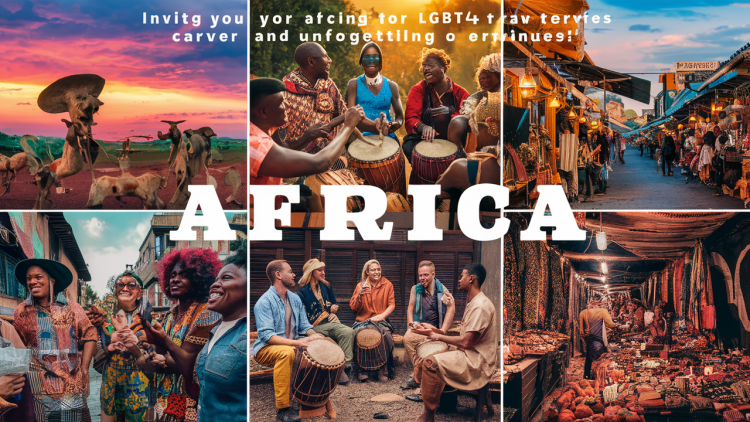Traveling as a gay or lesbian individual in Africa can present unique challenges due to varying cultural, religious, and legal attitudes towards homosexuality across the continent. While some African countries are more progressive and tolerant, others have laws that criminalize same-sex relationships. Navigating these complexities requires careful planning and awareness. Here are some top tips for gay and lesbian travelers considering a trip to Africa:
1. Research Destination Policies and Laws:
Before planning your trip, thoroughly research the laws and policies regarding LGBTQ+ rights in your destination country. Some African countries have anti-LGBTQ+ legislation that can result in fines, imprisonment, or even corporal punishment. Understanding the legal landscape will help you assess the level of risk and plan accordingly.
2. Choose LGBTQ+ Friendly Destinations:
Opt for destinations known for their LGBTQ+ friendliness and tolerance. South Africa, for example, is celebrated for its progressive constitution that prohibits discrimination based on sexual orientation. Cities like Cape Town and Johannesburg have vibrant LGBTQ+ communities and a welcoming atmosphere for travelers.
3. Respect Local Customs and Sensitivities:
Be mindful of local customs and sensitivities regarding public displays of affection. In many African countries, even heterosexual couples may refrain from overt displays of affection in public spaces. Understanding and respecting these cultural norms can help you avoid unwanted attention or confrontation.
4. Consider LGBTQ+ Friendly Accommodations:
Choose accommodations that are LGBTQ+ friendly or explicitly welcoming to diverse travelers. Many hotels, guesthouses, and resorts in major cities or tourist areas cater to LGBTQ+ clientele and prioritize inclusivity and safety.
5. Connect with LGBTQ+ Communities:
Reach out to LGBTQ+ communities or organizations in your destination country. Local LGBTQ+ groups can provide valuable insights, safety tips, and recommendations for LGBTQ+-friendly establishments and events. Connecting with fellow travelers or locals can also enhance your experience and provide a sense of community and support.
6. Be Cautious with Public Displays of Affection:
Exercise caution when engaging in public displays of affection, regardless of your sexual orientation. While attitudes towards same-sex relationships vary, it’s prudent to avoid drawing unnecessary attention or risking potential harassment or discrimination.
7. Use Discretion on Social Media:
Be mindful of what you share on social media platforms during your travels. Avoid disclosing sensitive information about your sexual orientation or relationship status that could potentially compromise your safety or privacy.
8. Familiarize Yourself with Emergency Procedures:
Familiarize yourself with emergency procedures and resources available to LGBTQ+ individuals in case of discrimination, harassment, or violence. Identify local LGBTQ+ support organizations, embassies, or consulates where you can seek assistance if needed.
9. Stay Informed and Stay Safe:
Stay informed about current events, developments, and potential risks related to LGBTQ+ rights in your destination country. Monitor local news sources and travel advisories issued by government agencies to stay updated on any changes or concerns that may impact your travel plans.
10. Trust Your Instincts and Prioritize Personal Safety:
Trust your instincts and prioritize your personal safety above all else. If you ever feel uncomfortable or unsafe, remove yourself from the situation and seek assistance from trusted individuals or authorities.
In conclusion
While traveling as a gay or lesbian individual in Africa may present challenges, careful planning, awareness, and respect for local customs can help ensure a safe and fulfilling experience. By researching destination policies, connecting with LGBTQ+ communities, and prioritizing personal safety, travelers can navigate the complexities of LGBTQ+ travel in Africa with confidence and resilience. Ultimately, every journey is an opportunity to foster understanding, promote inclusivity, and celebrate the diversity of human experiences.













